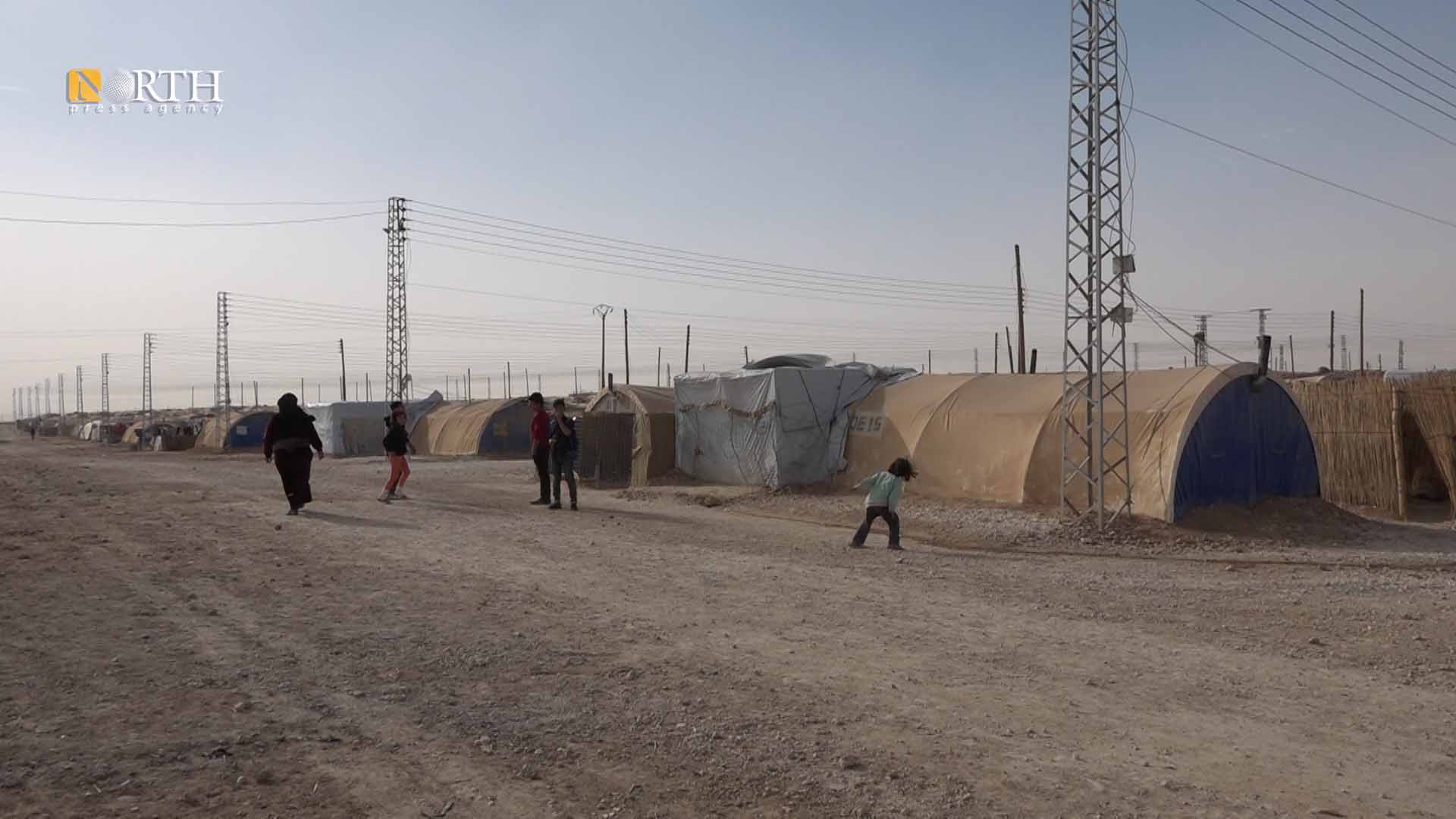Lack of medical services burden patients in Syria’s Raqqa IDP camp
RAQQA, Syria (North Press) – Parents of patients in Tel al-Samen IDP Camp, north of Raqqa, northern Syria, complain about the poor conditions of their patients and the high expenses of their treatment when transferring them to private hospitals and clinics outside the camp.
Kawthar Khalil, a mother of six residing in Tel al-Samen Camp, who has not managed to secure expenses of physical therapy sessions for her daughter that suffers from atrophy and complete paralysis along with limbs convulsion.
Al-Khalil always ask for help by the camp administration in order to secure her drugs, some vitamins, and hygiene tools, but she has obtained nothing.
6,000 IDPs including 1,200 families, mostly children, women and elderly people, live in Tel al-Samen camp. And 120 of them are people with disabilities, according to the camp administration.
Abdulkarim Othman, a father of ten residing in the camp, is forced to travel to Raqqa twice or thrice every month in order take his 13-year-old son, who suffers from thalassemia, to hospitals for treatment due to lack of drugs and treatment in the camp.
Last year, an 11-year-old daughter of Othman died of the same disease because he could not manage to secure her treatment and blood bags.
“Every visit to the hospital costs 50,000 Syrian pounds (SYP), we are IDPs living here in the camp and I do not have job,” Othman told North Press.
As for the official of the services department in the camp, Ali al-Abo, he mentioned the lack of medical service provided to the patients in the camp and particularly to those with chronic diseases and disabilities.
The limited capabilities of the camp administration and the major pressure placed on it in addition to the lack of aid provided to the camp are reasons after the poor condition in the camp and lack of medical services, according to the camp’s administration.
As other camps in Syria’s northeast, Tel al-Samen Camp has been negatively affected due to the closure of al-Ya’rubiyah/Tel Kochar border crossing with Iraq in terms of services including health and needs of patients.
Most of the camps in the Autonomous Administration of North and East Syria (AANES)-held areas are witnessing deteriorating conditions in light the ongoing closure of al-Ya’rubiyah crossing, two years ago, according to statements by AANES’ officials.
The UN announced, yesterday, the extension of the cross-border aid mechanism to Syria for an additional six months, a de facto without a new Security Council vote and without a green-lit by the Syrian government.
The new decision provided for “an extension of an additional six months until 10 July 2022,” subject to a report by the UN Secretary-General,” according to Agence France-Presse (AFP).
During years of the Syrian war, the AANES found several camps in its areas of control in northeastern the country including Hawl, al-Arisha, Newroz, Washokni and Roj.
Following the Turkish aggression in 2018 on Afrin and on Tel Abyad and Sere Kaniye in 2019 several camps were established including al-Awda, Sardam, Shahba, Afrin, Tel Abyad, al-Mahmudli, and two camps in Manbij city.

